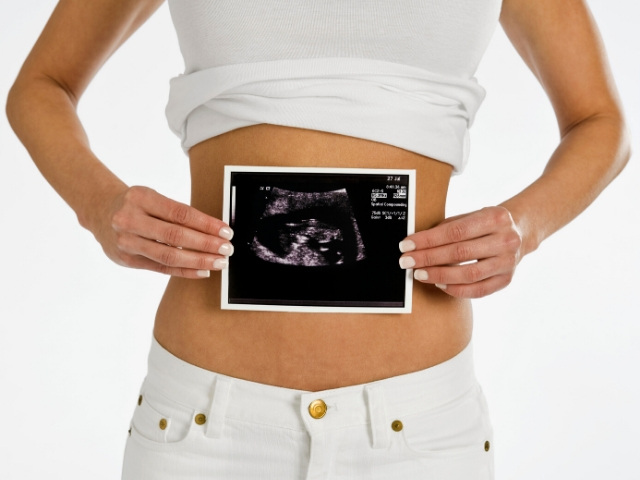Many things may be confusing like, all toads are frogs but not all frogs are toads. The same applies to the difference between sonography and ultrasound. The difference between them is the same as the difference between a carpenter and a hammer.
All You Need To Know About Differences Between Ultrasound and Sonogram
Difference between Ultrasound and Sonogram
The two terms are often interchangeable. The difference between them the two is :
- An ultrasound is a tool used for taking pictures
- A sonogram is an image generated by ultrasound
- Sonography is the application of an ultrasound tool for diagnosis
Hence, ultrasound is a process while sonogram is its result.
What is Ultrasound?
Sonography is noninvasive as well as painless procedure. It uses high-frequency sound waves, ultrasound waves. These waves are used to produce pictures of organs, soft tissue, blood vessels, and blood flow from the inside body. Such pictures help in medical analysis.
Other than x-rays, ultrasound is commonly used for diagnostic imaging. This helps doctors in gaining insights into the inner workings of the body. As compared to x rays ultrasound are :
- Safe
- Noninvasive
- Portable
- Radiation free
- Affordable
- Easily accessible
What is a Sonogram?
It is also known as ultrasonography. It is defined as visual imaging obtained during an ultrasound examination.
What is Sonography?
It is a medical field where ultrasound devices are used. The science of sonography means “sound writing”. The sonographers with the help of ultrasound, draw images. They coordinate with doctors and provide them with detailed images of the internal organs of the patient.
How does Ultrasound Work?
Ultrasound uses high-frequency sound waves. These waves are directed in the body and then reflected from the tissue or organs. Such echoes generate electrical signals which are converted into images of tissue and organs with the help of a computer.
Different types of ultrasound are :
- Doppler ultrasound: it helps in measuring and visualizing the blood flow of the heart and the blood vessels.
- Bono sonography determines bone density.
- High intensity focused ultrasound (HIFU) is used to destroy or change the abnormal tissue in the body without lacerating the skin.
- Elastography is used to distinguish tumors from healthy tissue.
- Therapeutic ultrasound helps in heating or breaking up the tissue.
Usually, ultrasound is done through skin transducers. But for better diagnostic resolution, insertion of the special transducer is recommended in the natural openings of the patient’s body. Such a special transducer using ultrasounds are :
- Transvaginal ultrasound: in this ultrasound, the transducer is placed inside the woman’s vagina to obtain her uterus as well as ovaries images.
- Transrectal ultrasound: In males, it is used to diagnose prostate conditions and therefore the transducer inside the rectum.
- Transesophageal echocardiogram: here the transducer is placed in the esophagus to obtain an image of the heart.
Uses of Ultrasound
This is the best technique to confirm as well as monitor pregnancy. Ultrasound is used for the following purpose :
Diagnostic
- Abdomen
- Heart
- Kidneys
- Gallbladder
- Thyroid
- Urinary bladder
- Spleen
- Pancreas
- Ovaries
- Testicles
- Eyes
- Blood vessels
- Liver
The pitfall of ultrasound is intestine or the area blocked by dense bone, this is due to the fact, the sound waves cannot travel through the areas which hold gas or air.
- Therapeutic use
It is used to detect and treat soft tissue injuries.
- Medical procedures
Ultrasound is beneficial in removal tissue from the precise area through a needle biopsy.
Ultrasound in Pregnancy
Ultrasound during pregnancy helps detect any abnormality in the fetus during its development such as Down syndrome or Turner’s syndrome. Though ultrasound is not 100 percent accurate but is non-invasive, painless, and safe for both the mother as well baby.
Uses of ultrasound in pregnancy are :
- In the first trimester
Ultrasound in the initial three months of pregnancy determines the development of the embryo in the womb and confirms several embryos.
- In the second trimester
During 18 to 20 weeks of pregnancy, ultrasound detects the formation of the spine, limbs, and other fetal structures. It also determines the size and location of the placenta. Sex can also be determined.
- In the third trimester
After 30 weeks ultrasound is performed to ensure the growth of the fetus. The location of the placenta is checked again to make sure it is not blocking the cervix.
Conclusion
Ultrasound is a safe and affordable imaging technology. It helps the doctor to diagnose the development of a baby inside the womb accurately.
References:
https://www.ncbi.nlm.nih.gov/pmc/articles/PMC3987368/













